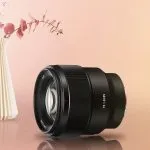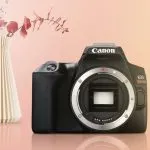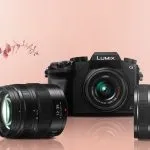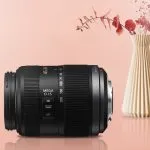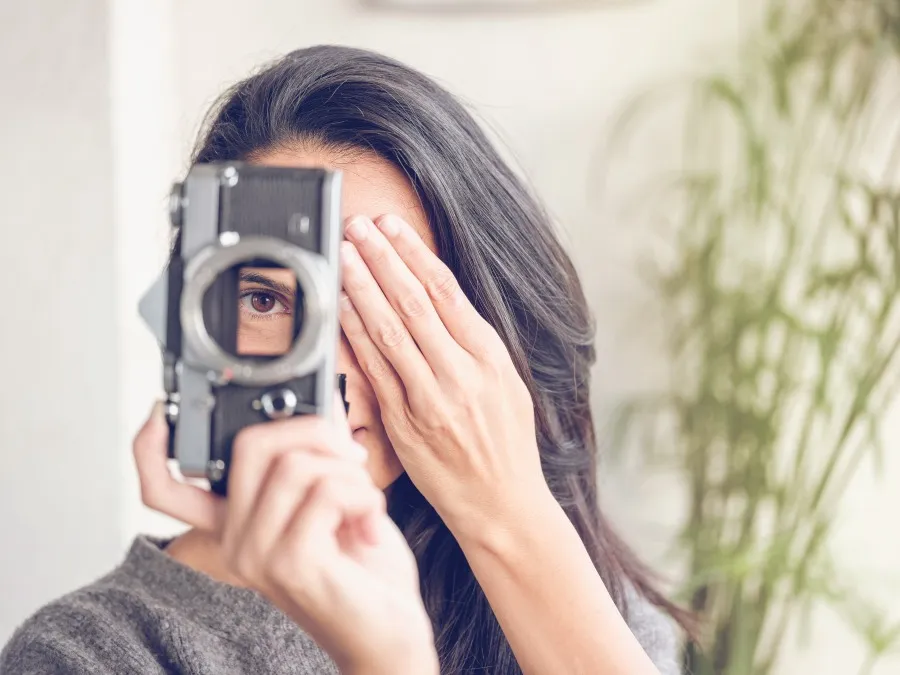
Mirrorless cameras changed a 70-year-old game.
The Camera market was ruled by DSLRs for years, but everything changed back in 2008/2010 with the upcoming of the mirrorless system. The likes of Sony and Panasonic released their first mirrorless cameras and took the market by storm.
Today, as I write this article some known mirrorless flagships are overthrowing the throne, and possibly beating their DSLR counterparts.
As the name implies, mirrorless cameras don’t include a mirror, but instead, the light passes through the lens and goes directly to the sensor of the camera. The scene/picture that is about to be captured is shown on the LCD screen, giving you the freedom to choose settings and such before snapping the picture.
Something interesting and worth knowing is that the very first mirrorless camera was made by a known printer company, Epson.
Yes, I was shocked too.
Back in 2004, Epson released a digital rangefinder camera, the Epson R-D1 which was a mirrorless interchangeable lens shooter, with a 6.1-megapixel APS-C sensor.
In today’s article, we will elaborate and discuss the longevity of a mirrorless camera.
Without wasting time further,
How Long Do Mirrorless Cameras Last?
“If you take care of things, they last”
This saying should answer a portion of your question.
If you maintain your mirrorless camera properly it should easily live at least 10 years. A camera can fail only when its image sensor dies.
So folks, please take care of your cameras.
However, that’s only one of the major roles, there’s more to the mirrorless camera lifespan.
Mirrorless Cameras Have Shutter Lifes
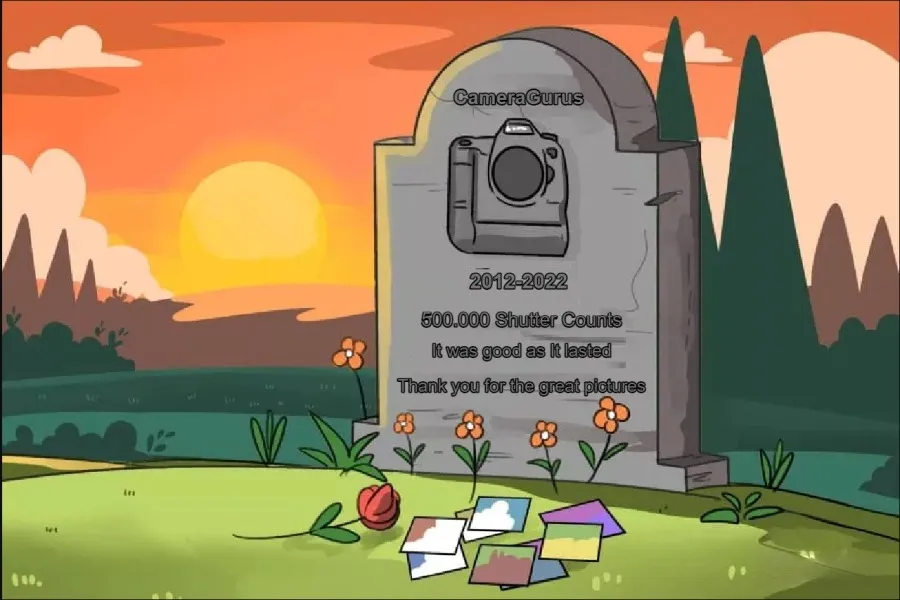
What It means is that a Mirrorless camera can get “old” by the amount of time you press its shutter button.
Simply put, Shutter Life, or say Shutter Count implies the number of photos the camera has taken.
For example, the average lifespan of a Mirrorless Camera goes from 100,000 to 400,000; mostly depends on the type of the camera. Some flagships from Sony can go as far as 500.000
Let’s say you own a Sony Alpha A6000 that has an estimated shutter life of 100,000.
With your A6000, you will be able to take 100 photos per day, 3 years in a row. Although, it is pretty much impossible to do so.
As I mentioned above your shutter life will mostly depend on the brand of the camera and the model. Below, I will mention some known mirrorless cameras, but please note that those are results based on my research, some might last more some even less.
| Known Mirrorless Camera and Their Shutter Life | Shutter Rating |
|---|---|
| Cameras Models | |
| Sony A7R II / Sony A7R III / Sony A9 | 500,000 |
| Fuji Film X-T4 / Canon EOS R6 | 300.000 |
| Canon EOS R / Nikon Z6 / Nikon Z7 | 200,000 |
| The Canon EOS 7D / Olympus OM-D E-M1 | 150,000 |
| Canon EOS M50 / Sony Alpha A6000 / Canon EOS RP | 100,000 |
What Makes Mirrorless Cameras Better than DSLRs:
Well, I can go on and talk about the benefits and drawbacks of both types, but that’s not why we are here, at least not this time.
Instead, I’ll talk about longevity.
Shutter Count is not as important with Mirrorless cameras as it is with DSLRs.
I know, I know, I sound ironic, after all the talking above.
Hear me out,
mirrorless cameras have both an electronic and mechanical shutter. Having two types of shutters, make them more versatile since they can switch in-between.
Electronic shutter is a big plus because it doesn’t have a “life”.
Basically, it doesn’t use any part of the camera to take pictures.
With DSLR it’s the opposite, they use only the mechanical shutters. That’s why you need to make sure you always look for the shutter count when buying a used DSLR camera.
Electronic Shutter Vs Mechanical Shutter – When To Use
Electronic Shutter
Let’s say you are a wildlife photographer, in this case, you want to “abuse” your electronic shutter.
The electronic shutter is totally silent and quick. It is capable of providing a much higher top shutter speed than its mechanical counterpart.
What’s more, it can reduce vibrations and has a better advantage at continuous shooting.
Mechanical Shutter
As for the mechanical one, you want to use it when you feel unsure about the situation and objects, that are constantly in motion.
Most importantly is that they work much better with flickering light sources, especially fluorescent.
Also, worth mentioning is that they have an edge over their peers when recording videos.
But the limited life span will always be the chink in their armor.
Other Factors That Determine Your Cameras Lastingness
Shutter Life was a major factor indeed, but that doesn’t mean that if your shutter count is good you will be fine.
There’s more to a camera’s endurance.
For example the camera sensor. Basically, the sensor is the heart of the camera.
Yes, it is replaceable, but it has a really delicate nature that can’t be done that easily, it can cost you more in the long run; that’s why it should be done only by a really professional technician.
Do not try to replace or repair your camera, yourself.
If you take care of your sensor or just the camera in general, it will outlast even the shutter life. So in a way, I mean that the “heart” of your camera is more important than the shutter count.
How to Prevent Damaging Your Camera
First of all, make sure you get a nice camera strap and a bag.
The camera is not the only thing you don’t want to damage, the lens tags along too; we all know how expensive lenses are.
Anyway, don’t trust your camera’s robustness and weather sealing that much. No, I am not saying that they are just marketing gimmicks, they do the work they are set out to do just fine.
But, if you keep dropping and bagging the camera around, hoping that their durable design will keep it safe, it won’t, everything has a limit. It will seriously upset some parts of your camera that will lead to its demise.
Also, another thing that can damage your camera’s sensor, would be cleaning it. You have to be extremely gentle when you clean your camera. If your camera has a good weather seal, it should be fine with moisture and dust. Still, I would highly encourage cleaning it, especially after a long shooting session outdoors.
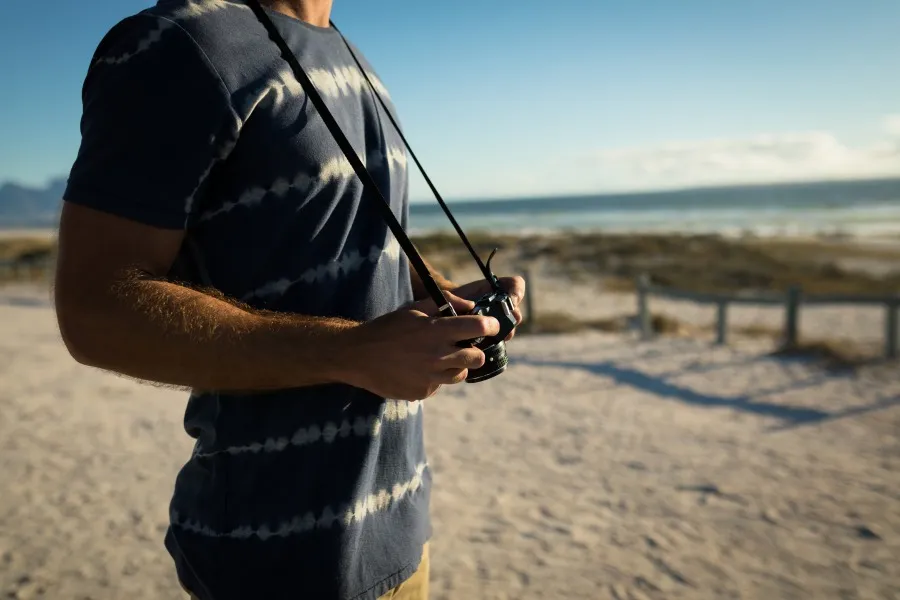
Final Words, Conclusion
Sometimes you will never know the true value of a moment until it becomes a memory.
For instance, cameras are devices that make us relive those memories.
Whether you are a hobbyist or a professional photographer who earns your living with your camera, you should take care of it.
Besides, those cameras don’t come cheap, right? They sure make a hole in our pocket. We don’t want to keep buying a new one.
Also, you should know that they are devices, and they will not “live” with us.
If it breaks, it breaks, every cloud has a silver lining. Who knows, later you might get the newer model you always wanted.
This is it, I hope that this article regarding how long mirrorless cameras last, proved useful to you and you managed to pull some wisdom out of it.
Until next time,
Happy Photographing!

Photographer & Writer
I specialize in landscape, street and portrait photography and I have been featured in various galleries and publications. I believe that photography is a way to tell stories!
